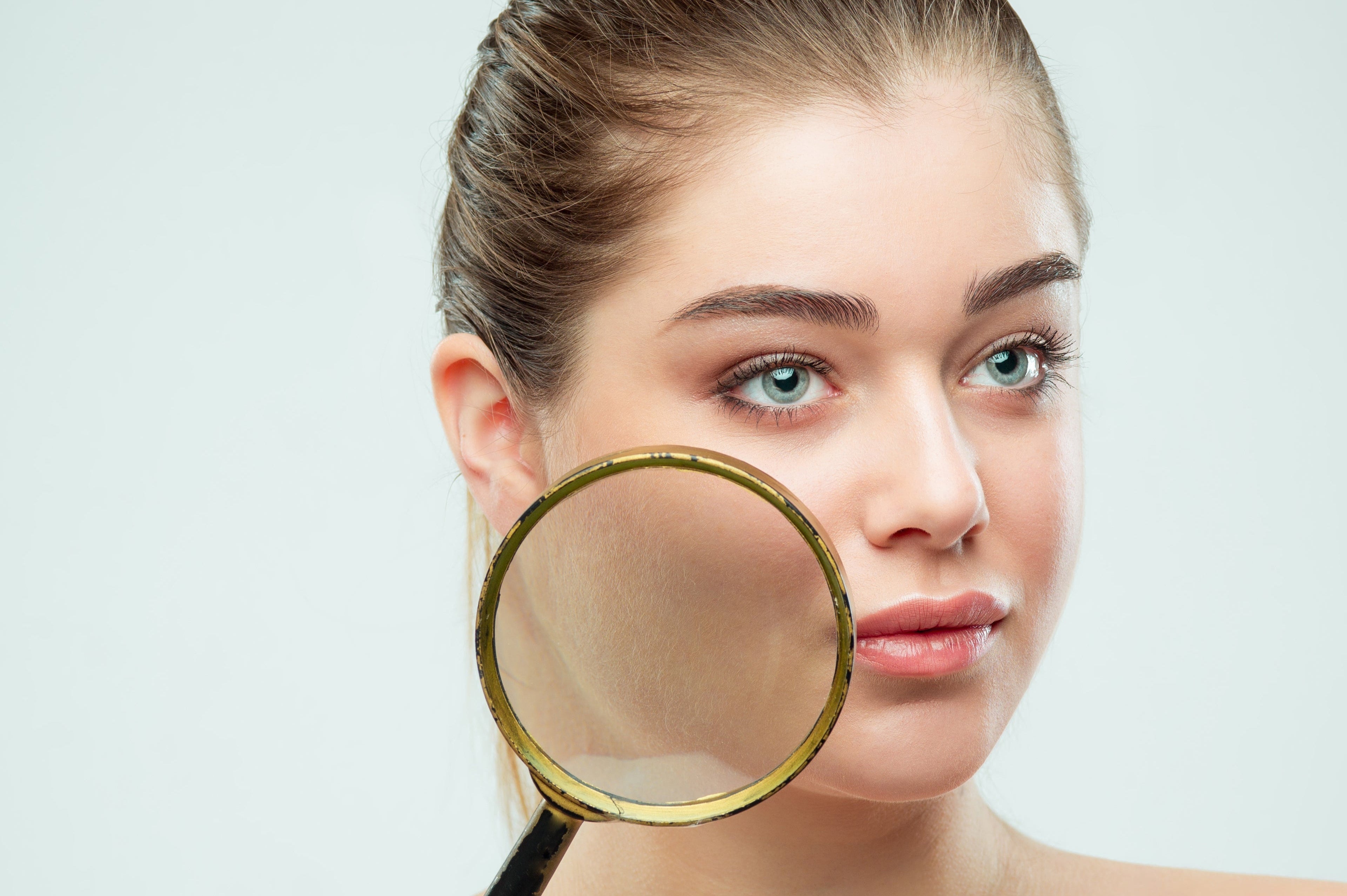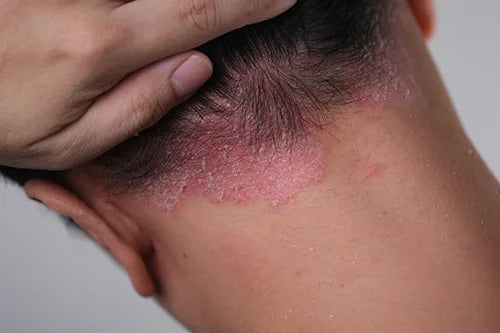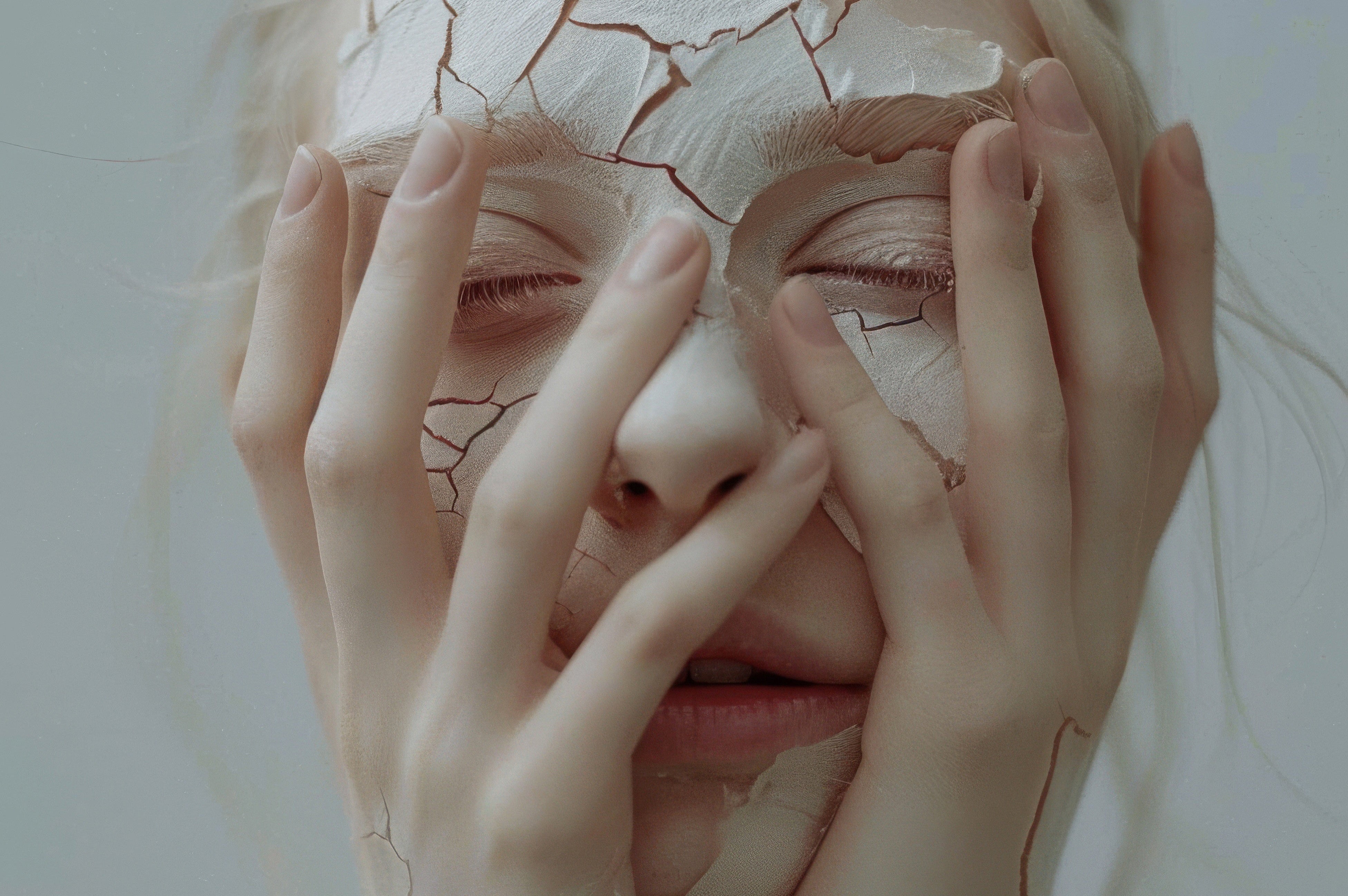
Oily Skin
Oily Skin
Does your skin get shiny in the middle of the day? Even just half an hour after washing your face! You probably have oily skin. Other telltale signs of oily skin include enlarged pores, blackheads, whiteheads, and, you guessed it, acne. Don’t worry. With a few simple steps, we can help you get healthy, balanced, and glowing skin.
What is Oily Skin?
A certain amount of sebum (oil produced by your sebaceous glands) is necessary for our skin to stay healthy and soft. In normal skin, oil flows freely and lubricates the surface of your skin, keeping it smooth and balanced. However, when your body starts to produce too much sebum (common during puberty or other hormonal changes), you can develop oily skin and the risk of acne.
What Causes Oily Skin?
Although oily skin is often genetic, naturally oily skin can get worse as our skin is exposed to many external factors.
The environment is one of these external factors — especially if you live in a hot or humid climate or if there are more pollutants in the air. Ironically, over-washing and scrubbing can increase oil production because your skin glands are trying to compensate for the dryness every time you strip your skin of its natural oils. Medications that affect hormones, like birth control pills, and increased stress levels can also contribute to oily skin. For women, oil production can vary depending on your monthly cycle and may decrease during perimenopause and menopause. For men, the hormones that increase oil production (known as androgens) are present at much higher levels during puberty and normalize in adulthood. Men will also experience a decrease in sebum production as they age.
Oily Skin and Acne:
Oily skin and acne-prone skin often go hand in hand. As a normal part of our skin’s renewal process, we shed excess dead skin cells. If you have oily skin, these dead skin cells can stick together and get trapped in your pores. This buildup can clog your pores, leading to comedones (blackheads and whiteheads). When P. acnes bacteria enter these clogged pores, blackheads and whiteheads can turn into red, inflamed pimples.
How Do You Know If You Have Oily Skin?
Your skin will have enlarged pores, and despite washing your face in the morning, your skin will appear shiny by midday (or even before).
Is Oily Skin Normal?
Oily skin is common and can actually be healthy. The more oil your skin produces, the more protected it is, which can help protect against fine lines and wrinkles. Don't expect wrinkle-free skin for life, but it is a positive side effect of oily skin.
Oily skin is normal as long as there are no other skin conditions and you try to keep your skin balanced.
How to Treat Oily Skin?
Unfortunately, no treatment can completely “turn off” oil production and eliminate oily skin, but you can help your skin look more balanced by using oil-absorbing products. Other habits to practice include avoiding over-washing (just wash with warm water morning and night!), using non-comedogenic (non-clogging) makeup and skincare products, and reducing stress levels.





